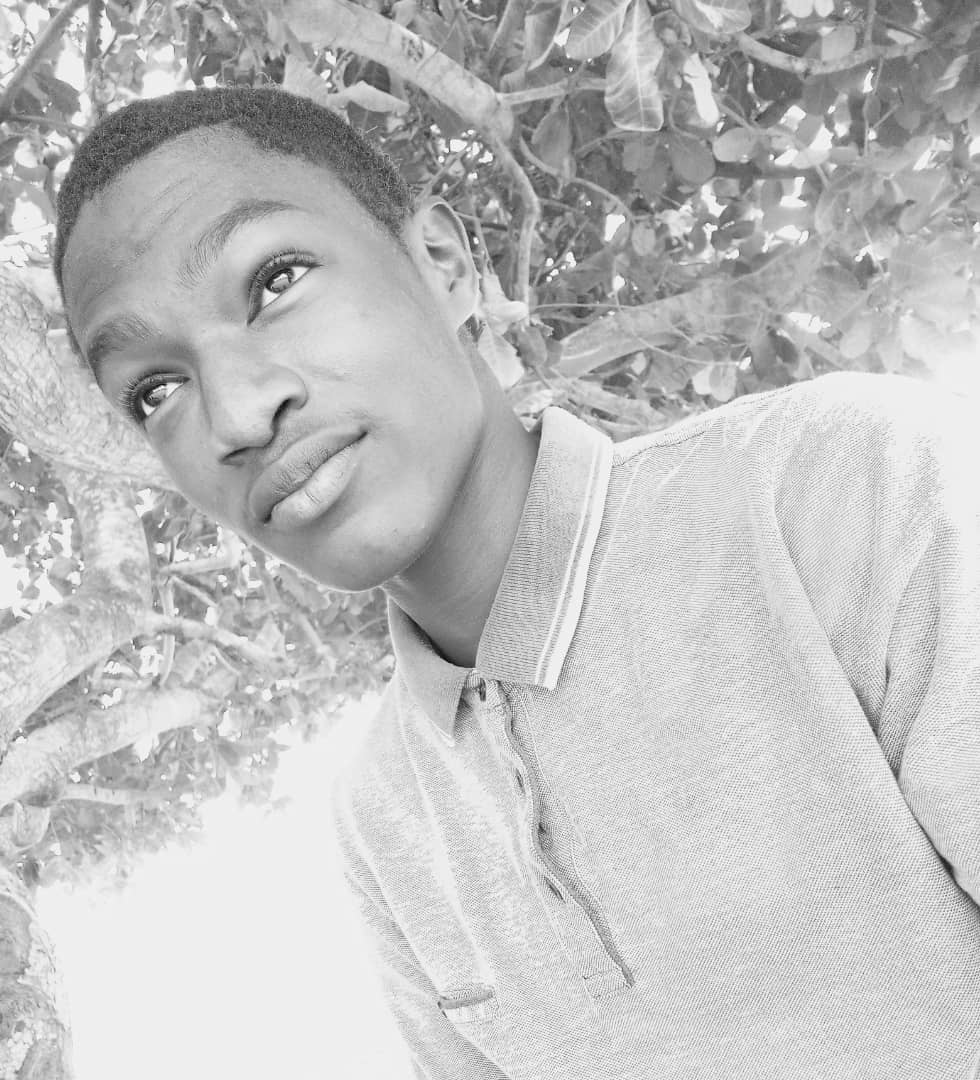
Muhammed Olowonjoyin
Interview by Frank Njugi (Kenya)
1. Hello Muhammed, it is a pleasure talking to you. You are a young African writer making waves in the literary world. When did you start writing and what ignited your interest in literary arts?
Hi Frank. It is a pleasure to talk to you as well. It might sound a little bit unreal but I didn’t intentionally choose writing as most writers do. Our encounter can be easily described as accidental – like a man finding a lover in a space where he never thought he would. But at first, I ran. I didn’t think I had enough mental strength or even enough knowledge, to ferry me through the rigour of the literary world, which was true. My story is, I couldn’t find love in something else, so I eventually decided to return to it; this field of the possibilities to protest, create magic and search for a home and live in it. These possibilities are what really grew my interest in literary arts and in its course. I have dived into every tankard of knowledge towards language mastery, relishing every poetic moment, bit by bit, or all at once. And now, there’s no running anymore.
All of these happened between 2018 and 2020. But, I started writing more intentionally in 2022 and the strike by the prolonged strike by the Academic Staff Union of Universities (ASUU), which kept students out of universities, might’ve been a great catalyst to that.
2. Your work, at times, leans on exploring and analysing the concept of home and belonging. How does your home influence your writing and would you say it acts as a determiner of what you put out as a young writer?
The conceptualization of “home and belonging” in my work is almost usually accompanied by the predicaments in my home. And by home, It could be ranging from my body – my personal home, to the physical home I belong to, and the one hovering above them all: my country. The truth is, we tend to look more like our works in the universe of confessional contemporary writing – or, at least, have little bits of ourselves, or stories that matter to us, scattered around them. Writing is more cathartic to me than it isn’t. I believe my mild identity crises, alongside my country’s predicaments, must have a great influence on what I write.
3. Romeo Oriogun once said “a poet belongs to his people. A poet belongs to his community, to his country. My first duty is to my city” Based on this would you say writers have a duty of using their craft as that tool for paying homage to the places they come from?
Yes, I agree with Romeo on this. The craft can in fact, also be applied to more than just paying homage to our cities. Our homes/cities/countries make up a good chunk of what we became or who we are becoming, and no matter how we try to hide this, it still becomes present in the lifestyles that are oblivious to us. I think of the art as a tool towards ridding ourselves of hypocrisies. And even though the craft is more like an attempt, it’s a great projectile towards this, because the honesty of a craft is as important as the art itself. This could mean homage paying, especially, could lend the craft, as much as calling out the wrongs in the society too. If the owners of the ‘place’ don’t do it, no one would. And if someone else does, it becomes misappropriation.
Read – Literature as a Tool for Advocacy: A Conversation with Naomi Waweru
4. In your poem ‘Elixir of Fate’ published in One black boy Like That Review you say “we don’t get to choose where our bane makes us bleed from. Isn’t that a metaphor for our insignificance?” Would you say one’s suffering lends to one’s art? Have the challenges in your country influenced the concepts you write about in any way?
I actually wrote that particular poem towards the end of last year when I wasn’t only mentally disconnected from a lot of things, but there was also a headache depredating the innards of my cranium. See, I believe there isn’t a limit to the range of what we can call art, or, in fact, how artful a piece can be before we call it art. Sometimes, I get drowned in the thoughts of how our banes cripple us without permission, then I wonder if we have any power over what our bodies become at all. My writing tends towards faith, masculinity, mental health, home, and the totality of the body itself because those are the elements that make me seek answers. I would say suffering, or basically, anything at all can influence what a writer writes about. And trust me, there’s absolutely nothing cool about suffering and challenges, but the race towards discovery/home/answers must’ve made them penetrate my writing and sit at the core.
5. In your poetry, there seem to be instances where you dive into the Fictional. What are your thoughts on Fictional Poetry as a style and would you say it can become that mode and approach young writers use to explore their identities as Africans?
Going with what I said earlier about art and how what furls into us furls back into what we put out, I would say, like how Ocean Vuong once said that everything he writes about isn’t exactly a confession of his “body” or the narrations he witnessed. That some are in fact, fiction, or faction. And my style of poetry – a dive into the “fictional”, is more about the offshoot of what I’ve read [talking about the style], imagined or even dreamt of – sewed into imageries of some concrete and abstract realities. The creation of the imageries that would live in my heart, where I would in turn live in before I build another “fictional” home. Name it an art towards discovery and rediscovery. Some might just be self-portraits without the self, as Logan February would say. There are lots of stories to tell by Africans, by which I mean, every means of poetry – whether narrative, fictional, speculative or others, should be used to portray the identities of Africa and Africans in their purest and lucid forms, without deviating from the intricacies and purpose of the art in itself.
6. Which individuals in the Contemporary literature world would you say inspire you with their use of Literary arts as that medium for prospecting and revealing the true ‘African experience’?
With this question, three contemporary writers come to mind: Safia Elhillo, Romeo Oriogun and Warsan Shire. I fell in love with these three almost immediately after I read their works and they’ve been a massive inspiration. But I think there’s more of a proximity between myself and Romeo, probably because we share the same country for a home.
7. You were named among the finalists for the Nigerian Students Poetry Prize Award where you came in 4th What did this major accomplishment mean to you and would you say it gave you the validation you needed as an emerging writer?
I was very surprised when the longlisted entries came out. I never expected it. Trust me, this isn’t about my impostor syndrome. Nigerian Students Poetry Prize was the first poetry competition I ever entered and when I was named finalist, I knew I’d already gotten the push I needed as a writer. I’d gotten there from a list of over 500 entries. Whether true or not, but luck doesn’t always take you that far. I was ready for whatever the result might be, and I wasn’t exactly optimistic. Trust me, Frank, the joy that I placed in the biggest poetry prize for Nigerian students not only lingered for a long time but also gave my voice hope. A big thanks to Eriata Oribhabor and other organizers for the organization of the prize to bolster and reward creativity among Nigerian student poets.
Read – An Interview with Jide Badmus
8. Finally, what should we expect from you in the future in relation to your Literary output?
Man, I’m not sure if I can make any prognosis. But if I’ll be making any, in the short-term… maybe keep nurturing my art and my soul and probably write a book? But for the long-term, I can’t exactly say. I’ll be concluding my B.Sc. soon, then I’d have to await for what happens after. But one thing is, I hope I keep writing because that’s the most important thing I believe……

Muhammed Olowonjoyin, TPC III, studies Biochemistry at the University of Ilorin. He was third runner-up in the Nigerian Students Poetry Prize (2022) and received an Honourable Mention in the Kreative Diadem Poetry Contest (2022). His poems have been published or forthcoming in Stanchion, Brittle Paper, Quarter After Eight, The Bitchin’ Kitsch, Aôthen Magazine, The Shallow Tales Review, Acropolis Journal, The Decadent Review, and elsewhere. He reads poetry for The Dodge Magazine. You can find him on Twitter.




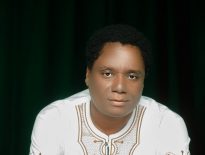
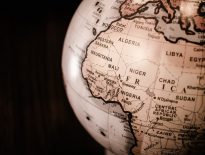
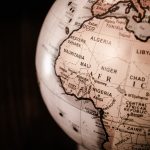
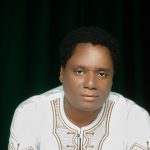
Hello writersspace.net administrator, You always provide great information and insights.